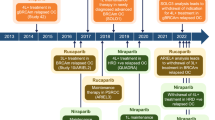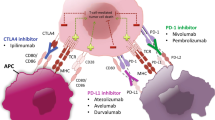Abstract
Taxanes are used in the treatment of several solid tumours. Adverse events (AEs) might be influenced by single nucleotide polymorphisms (SNPs) in genes encoding proteins responsible for pharmacokinetic and pharmacodynamic. In this prospective, monocentric, observational study we explored the effect of SNPs in the main genes involved in taxanes metabolism and transport, on toxicity and efficacy in 125 patients (pts) treated with paclitaxel, nab-paclitaxel, or docetaxel for neoplasms. There was no statistically significant association between the investigated SNPs and AEs. The heterozygous genotype of CYP3A4*22 showed a trend of association with skin reactions in pts treated with paclitaxel and nab-paclitaxel (RR = 6.92; 95% CI 0.47, 99.8; p = 0.0766). CYP2C8*3/*4 variant carriers showed a trend of association with overall AEs in pts treated with paclitaxel and nab-paclitaxel (RR = 1.28; 95% CI 0.96, 1.67; p = 0.0898). No statistically significant relationship with treatment efficacy was found. ABCB1 3435TT showed a trend of association with a higher treatment response (RR = 0.22; 95% CI 0.03, 1.51; p = 0.0876). Despite the population was heterogeneous, CYP3A4*22 and CYP2C8 SNPs may influence paclitaxel and nab-paclitaxel toxicity and ABCB1 c.3435 may affect taxanes effectiveness, even if any statistically significant was found.
Similar content being viewed by others
References
De Weger VA, Beijnenb JH, Schellensa JHM. Cellular and clinical pharmacology of the taxanes docetaxel and paclitaxel—a review. Anticancer Drugs. 2014;25:488–94.
Ma P, Mumper RJ. Paclitaxel nano-delivery systems: a comprehensive review. J Nanomed Nanotechnol. 2013;4:164.
Sparano JA, Wang M, Martino S, Jones V, Perez EA, Saphner T, et al. Weekly paclitaxel in the adjuvant treatment of breast cancer. N. Engl J Med. 2008;358:1663–71.
Kudlowitz D, Muggia F. Defining risks of taxane neuropathy: insights from randomized clinical trials. Clin Cancer Res. 2013;19:4570–7.
Guo X, Sun H, Dong J, Feng Y, Li H, Zhuang R, et al. Does nab-paclitaxel have a higher incidence of peripheral neuropathy than solvent-based paclitaxel? Evidence from a systematic review and meta-analysis. Crit Rev Oncol Hematol. 2019;139:16–23.
Chou PL, Huang YP, Cheng MH, Rau KM, Fang YP. Improvement of paclitaxel-associated adverse reactions (ADRs) via the use of nano-based drug delivery systems: a systematic review and network meta-analysis. Int J Nanomedicine. 2020;15:1731–43.
Frederiks CN, Lam SW, Guchelaar HJ, Boven E. Genetic polymorphisms and paclitaxel- or docetaxel-induced toxicities: a systematic review. Cancer Treat Rev. 2015;41:935–50.
Rahman A, Korzekwa KR, Grogan J, Gonzalez FJ. Selective biotransformation of taxol to 6α-hydroxytaxol by human cytochrome P450 2C8. Cancer Res. 1994;54:5543–6.
Shou M, Martinet M, Korzekwa KR, Krausz KW, Gonzalez FJ, Gelboin HV. Role of human cytochrome P450 3A4 and 3A5 in the metabolism of taxotere and its derivatives: enzyme specificity, interindividual distribution and metabolic contribution in human liver. Pharmacogenetics . 1998;8:391–401.
Hiratsuka M. Genetic polymorphisms and in vitro functional characterization of CYP2C8, CYP2C9, and CYP2C19 allelic variants. Biol Pharm Bull. 2016;39:1748–59.
Dai D, Zeldin DC, Blaisdell JA, Chanas B, Coulter SJ, Ghanayem BI, et al. Polymorphisms in human CYP2C8 decrease metabolism of the anticancer drug paclitaxel and arachidonic acid. Pharmacogenetics .2001;11:597–607.
Bahadur N, Leathart JBS, Mutch E, Steimel-Crespi D, Dunn SA, Gilissen R, et al. CYP2C8 polymorphisms in Caucasians and their relationship with paclitaxel 6α-hydroxylase activity in human liver microsomes. Biochem Pharm. 2002;64:1579–89.
Henningsson A, Marsh S, Loos WJ, Karlsson MO, Garsa A, Mross K, et al. Association of CYP2C8, CYP3A4, CYP3A5, and ABCB1 polymorphisms with the pharmacokinetics of paclitaxel. Clin Cancer Res. 2005;11:8097–104.
Wang D, Wrighton SA, Guo Y, Cooke GE, Sadee W. Intronic polymorphism in CYP3A4 affects hepatic expression and response to statin drugs. Pharmacogenomics J. 2011;11:274–86.
Okubo M, Murayama N, Shimizu M, Shimada T, Guengerich FP, Yamazaki H. The CYP3A4 intron 6 C>T polymorphism (CYP3A4*22) is associated with reduced CYP3A4 protein level and function in human liver microsomes. J Toxicol Sci. 2013;38:349–54.
De Graan AJM, Elens L, Sprowl JA, Sparreboom A, Friberg LE, Van Der Holt B, et al. CYP3A4*22 genotype and systemic exposure affect paclitaxel-induced neurotoxicity. Clin Cancer Res. 2013;19:3316–24.
Kuehl P, Zhang J, Lin Y, Lamba J, Assem M, Schuetz J, et al. Sequence diversity in CYP3A promoters and characterization of the genetic basis of polymorphic CYP3A5 expression. Nat Genet. 2001;27:383–91.
Tsai SM, Lin CY, Wu SH, Hou LA, Ma H, Tsai LY, et al. Side effects after docetaxel treatment in Taiwanese breast cancer patients with CYP3A4, CYP3A5, and ABCB1 gene polymorphisms. Clin Chim Acta. 2009;404:160–5.
Tran A, Jullien V, Alexandre J, Rey E, Rabillon F, Girre V, et al. Pharmacokinetics and toxicity of docetaxel: role of CYP3A, MDR1, and GST polymorphisms. Clin Pharm Ther. 2006;79:570–80.
Sparreboom A, Van Asperen J, Mayer U, Schinkel AH, Smit JW, Meijer DKF, et al. Limited oral bioavailability and active epithelial excretion of paclitaxel (Taxol) caused by P-glycoprotein in the intestine. Proc Natl Acad Sci U.S.A. 1997;94:2031–5.
Bardelmeijer HA, Ouwehand M, Buckle T, Huisman MT, Schellens JHM, Beijnen JH, et al. Low systemic exposure of oral docetaxel in mice resulting from extensive first-pass metabolism is boosted by Ritonavir. Cancer Res. 2002;62:6158–64.
Kroetz DL, Pauli-magnus C, Hodges LM, Huang CC, Kawamoto M, Johns SJ, et al. Sequence diversity and haplotype structure in the human ABCB1 (MDR1, multidrug resistance transporter) gene. Pharmacogenetics .2003;13:481–94.
Bergmann TK, Brasch-Andersen C, Gréen H, Mirza MR, Skougaard K, Wihl J, et al. Impact of ABCB1 variants on neutrophil depression: a pharmacogenomic study of paclitaxel in 92 women with ovarian cancer. Basic Clin Pharm Toxicol. 2012;110:199–204.
Chang H, Rha SY, Jeung HC, Im CK, Ahn JB, Kwon WS, et al. Association of the ABCB1 gene polymorphisms 2677G>T/A and 3435C>T with clinical outcomes of paclitaxel monotherapy in metastatic breast cancer patients. Ann Oncol. 2009;20:272–7.
Elens L, van Gelder T, Hesselink DA, Haufroid V, van Schaik RH. CYP3A4*22: promising newly identified CYP3A4 variant allele for personalizing pharmacotherapy. Pharmacogenomics .2013;14:47–62.
Evans WE, Mcleod HL. Pharmacogenomics — Drug Disposition, Drug Targets, and Side Effects. N. Engl J Med. 2003;348:538–49.
Leskelä S, Jara C, Leandro-García LJ, Martínez A, García-Donas J, Hernando S, et al. Polymorphisms in cytochromes P450 2C8 and 3A5 are associated with paclitaxel neurotoxicity. Pharmacogenomics J. 2011;11:121–9.
Marsh S, Paul J, King CR, Gifford G, McLeod HL, Brown R. Pharmacogenetic assessment of toxicity and outcome after platinum plus taxane chemotherapy in ovarian cancer: the scottish randomised trial in ovarian cancer. J Clin Oncol. 2007;25:4528–35.
Kim KP, Ahn JH, Kim SB, Jung KH, Yoon DH, Lee JS, et al. Prospective evaluation of the drug-metabolizing enzyme polymorphisms and toxicity profile of docetaxel in Korean patients with operable lymph node-positive breast cancer receiving adjuvant chemotherapy. Cancer Chemother Pharm. 2012;69:1221–7.
Orr GA, Verdier-Pinard P, McDaid H, Horwitz SB. Mechanisms of Taxol resistance related to microtubules. Oncogene .2003;22:7280–95.
Guo W, Dong W, Li M, Shen Y. Mitochondria P-glycoprotein confers paclitaxel resistance on ovarian cancer cells. Onco Targets Ther. 2019;12:3881–91.
Hoffmeyer S, Burk O, Von Richter O, Arnold HP, Brockmöller J, Johne A, et al. Functional polymorphisms of the human multidrug-resistance gene: multiple sequence variations and correlation of one allele with P-glycoprotein expression and activity in vivo. Proc Natl Acad Sci U.S.A. 2000;97:3473–8.
Hamidovic A, Hahn K, Kolesar J. Clinical significance of ABCB1 genotyping in oncology. J Oncol Pharm Pr. 2010;16:39–44.
Zhong J, Guo Z, Fan L, Zhao X, Zhao B, Cao Z, et al. ABCB1 polymorphism predicts the toxicity and clinical outcome of lung cancer patients with taxane-based chemotherapy. Thorac Cancer. 2019;10:2088–95.
Author information
Authors and Affiliations
Corresponding author
Ethics declarations
Conflict of interest
LVN reports: grants from Eisai; speaker bureau, travel expenses for conference from Roche and Gentili; advisory role from Novartis and Celgene; advisor role, travel expenses for conference from Pfizer; advisory board from MSD. The other authors declare that they have no conflict of interest.
Additional information
Publisher’s note Springer Nature remains neutral with regard to jurisdictional claims in published maps and institutional affiliations.
Rights and permissions
About this article
Cite this article
Demurtas, S., La Verde, N., Rota, S. et al. Single nucleotide polymorphisms to predict taxanes toxicities and effectiveness in cancer patients. Pharmacogenomics J 21, 491–497 (2021). https://doi.org/10.1038/s41397-021-00227-7
Received:
Revised:
Accepted:
Published:
Issue Date:
DOI: https://doi.org/10.1038/s41397-021-00227-7
- Springer Nature Limited
This article is cited by
-
Single-nucleotide polymorphisms and the effectiveness of taxane-based chemotherapy in premenopausal breast cancer: a population-based cohort study in Denmark
Breast Cancer Research and Treatment (2022)




